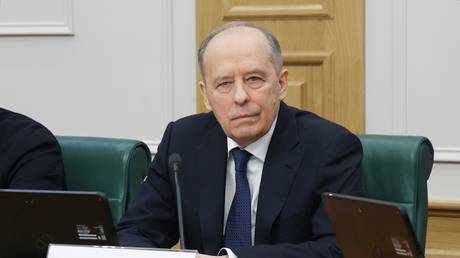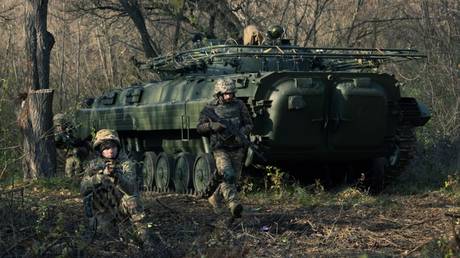ARTICLE AD BOX
Activities of 32 international terrorist cells were curbed in central part of the country, FSB chief Aleksandr Bortnikov has said
A total of 134 acts of terrorism and sabotage have been prevented in central Russia since the outbreak of the conflict between Moscow and Kiev, the director of Russia’s Federal Security Service (FSB), Aleksandr Bortnikov, has said.
The country’s security agencies have also curbed the activities of 32 international terrorist cells since February 2022, Bortnikov announced on Tuesday, during a virtual meeting of the National Anti-Terrorism Committee (NAC).
The groups, which he said were mainly composed of migrants from Central Asia, were planning attacks on key infrastructure and on areas of mass gatherings, he added.
Ukraine, “with the backing of the US and other NATO countries, is increasing its efforts to organize terrorist attacks and sabotage on Russian territory, trying to weaken logistic support for the Russian military and provoke panic among the population,” the FSB chief said, according to a NAC statement.
“The Ukrainian and Western intelligence services are expanding the circle of possible perpetrators, recruited to commit high-profile crimes inside Russia,” Bortnikov said. Kiev and its foreign backers are also assisting “international terrorist organizations” that train and provide equipment to those people, he added.
Read more Ukrainian spies involved in Moscow terror attack – FSB chief
Ukrainian spies involved in Moscow terror attack – FSB chief
According to the security service director, the main targets of recruitment by Ukrainian and Western agencies are younger people and migrant workers, he said.
“A vivid example [of such activities] is the involvement of Ukrainian military intelligence in the terrorist attack at Crocus City Hall near Moscow,” the FSB chief said.
Kiev has denied any involvement in the attack on the concert venue on March 22 that claimed 145 lives and left over 550 injured. Four gunmen, later found to be citizens of Tajikistan, stormed the building ahead of a rock concert, shooting everyone in sight before setting it on fire.
A terrorist organization known as Islamic State-Khorasan (ISIS-K) claimed responsibility for the attack. However, Moscow has suggested that Kiev had used the Islamist group as a proxy.
.png)
 5 months ago
6
5 months ago
6








 English (US)
English (US)